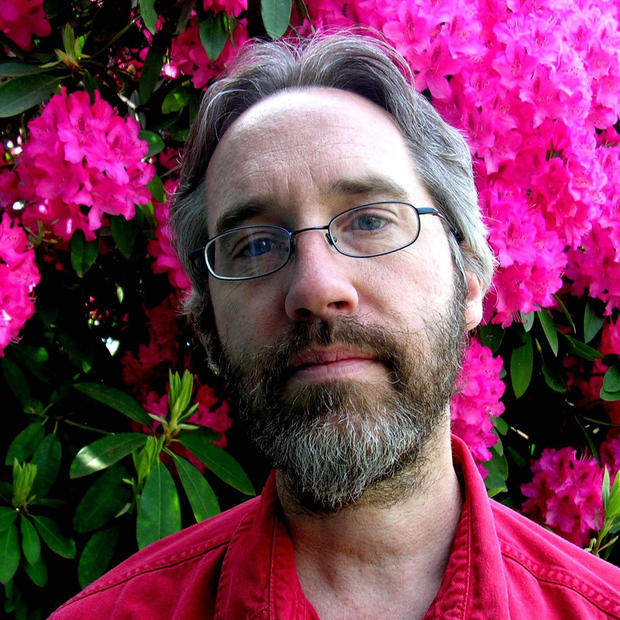In 2013, Crosscut editor in chief, Mary Bruno approached me about doing some anthropological fieldwork in Olympia. I was intrigued by the prospect of studying the complex tribal politics of the state legislature. Unfortunately the timing didn’t work. But a few months ago, I renewed discussions with Mary. The result is the upcoming “Field Notes from Olympia.” A series of anthropological reports from the class I’m co-teaching this term with English professor Nathalie Kuroiwa-Lewis, who specializes in rhetoric.
Popular notions of anthropologists conjure images of Indiana Jones or New Yorker cartoons with pith-helmeted characters simmering in a cannibal’s cooking pot in some jungle clearing. We anthropologists do still ply our trade in relatively remote regions of the world for museums and universities. But many of us now conduct research in what might seem like surprising settings and for a variety of clients: government agencies (the U.S. State Department, Pentagon, World Health Organization), corporations (Microsoft, Intel) and hundreds of nongovernmental organizations such as Doctors Without Borders and Partners in Health (cofounded by anthropologist-physicians Paul Farmer and Jim Yong Kim, now President of the World Bank).
Anthropologists have a lot to offer the world, either as professional outsiders bringing fresh eyes to familiar settings or applying anthropological theory to human relationships and behaviors.
Among anthropology’s most enduring tricks is the ability to transform the everyday into the exotic, and to make the exotic mundane. I do this in my introductory anthropology classes by, for example, comparing American fraternity or sorority initiations with those of secret societies of central Africa. In 1956, anthropologist Horace Miner published a classic essay on “Body Ritual Among the Nacirema” about a tribal society that practiced strange rituals around health and beauty. Miner described Nacirema men “scraping and lacerating the surface of the face with a sharp instrument” every day, and “medicine men” jabbing clients with “magically treated needles.” He never revealed in his essay that “Nacirema” is “American” spelled backwards, or that he was describing everyday activities in American culture (shaving, medical care, etc.) through an anthropological lens. Observations like these give a fresh strangeness to the routines of daily life and help us see to ourselves as others might.
Anthropological studies of Western society are not limited to Miner’s brand of exoticized pastiche. Since the publication of anthropologist Laura Nader’s revolutionary essay “Up The Anthropologist” in the early 1970s, growing numbers of anthropologists shifted from primarily studying groups with relatively less-power (e.g. peasants, sharecroppers, low-tech societies) to also studying rich and powerful people and organizations. They are exploring the complexities of global financial markets, the secretive world of America’s weapons production and military culture and our decades-long obsession with cars. For his bestselling book, Debt, Occupy movement leader David Graeber draws on anthropological literature to challenge our contemporary notions about debt.
For the past two decades I’ve been a Professor of Anthropology at Saint Martin’s University. The school’s wooded campus in Lacey is just five miles from the Capitol dome. That proximity, along with St. Martin’s focus on student-centered classes that use projects to teach writing, critical thinking and disciplinary expertise makes “Field Notes from Olympia” a natural project for us. With the State Supreme Court finding the legislature in contempt for not abiding by the court’s mandate to fully fund K-12 schools, this is the perfect time to bring our students to the capital for ethnographic observations.
The class I am co-teaching with Nathalie Kuroiwa-Lewis combines the study of journalism and anthropology and mixes classroom sessions with fieldwork observing the legislative process in action. The class is small, 10 advanced undergraduate students pursuing degrees in business, psychology, political science, anthropology, sociology and English. All of us are studying writing, journalism and ethnographic methods.
Our methodology is straightforward. We will be attending legislative hearings and press events, watching lobbyists, staff and officials in their feeding zones and other natural habitats, and compiling journalistic and ethnographic notes that we will share with Crosscut’s readership throughout the legislative session. We’ll also submit a more formal report at its conclusion.
We will closely follow press coverage of the session. We have done our homework on McCleary, reading the original decision and various commentaries about it. But the class is adopting an outsider’s stance, viewing the settings, behaviors, words and context of the legislative process as naïve observers. In this way, we hope to provide a more unique, unvarnished perspective on the 2015 session.
We are interested in basic questions about how the state legislative process appears to work to outsider eyes. Who are the players? How does power manifest itself in ways large and small? How does big money manifest itself? What are the assumed and visible processes for getting things accomplished? How do the various groups interact? What are the rituals and traditions of the session?
We don’t expect to come away with definitive answers to each of these questions. We don’t know exactly what we’ll find. Mostly, we want to understand whether state lawmakers are doing their assigned job of taking care of the people’s business in a way that makes sense.
We’re starting by looking at how some of the formal features of the legislature, prescribed forms of address and behavior, maintain order and mask hostilities. Initial hearings left us examining how the rhetoric of legislators obscures the desired impacts of proposed legislation, and generating questions about how these public displays relate to less public forms of power in a post-Citizens United age where the secretive funding process raises deep questions about the importance and relevance of public legislative debates.
We look forward to sharing these and other observations with Crosscut’s readership. As a class, we hope our “Field Notes from Olympia” add some insight into what promises to be an important legislative session.


